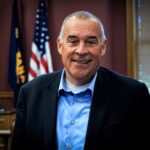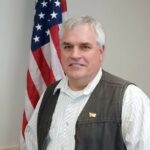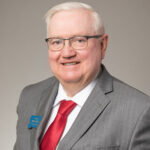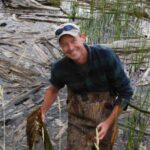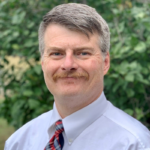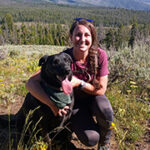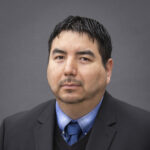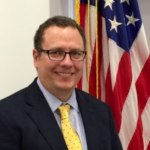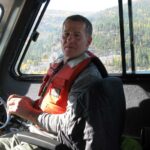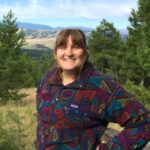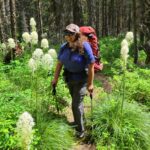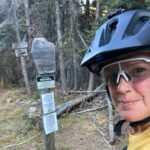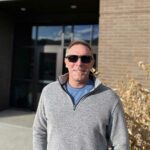The WMCC membership, with representatives from federal, state, tribal, and local government, as well as citizen members, enables us to work across jurisdictional boundaries and embrace a multi-agency approach to problem solving, leading to success on a number of challenging issues.


Mike Koopal is the founder and executive director of the Whitefish Lake Institute. Mike currently serves governor appointments to the Water Pollution Control Advisory Committee and the Western Montana Conservation Commission. His past service includes governor appointments to the Flathead Basin Commission, where he chaired the On-site Wastewater Treatment Committee and Technical Committee, and the Upper Columbia Conservation Commission, where he chaired the Aquatic Invasive Species Early Detection and Monitoring Committee. Mike also served on the Montana Watershed Coordination Council Board and the Whitefish Climate Action Plan Committee. Mike was a co-coordinator of the second and third editions of the Montana Lake Book. He is a past recipient of the Montana Chapter of the American Fisheries Society’s Individual Achievement Award for his outstanding contribution to the protection and enhancement of fisheries resources in Montana.
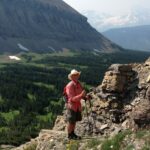
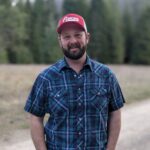


Duane G. Braaten served in the U.S. Army from 1972-1974. He is married to Janette and together have 4 grown children who are all alumni of MSU College of Agriculture. With Janette, they founded and operated Farm-To-Market Pork for 48 years, raising pork and beef and marketing them through their retail meat business with stores in Kalispell and Missoula. Duane has served on a number of Boards over the years including the West Valley School Board, the Montana Pork Producers Council, the Montana Board of Livestock, the National Livestock and Meat Board, the Kalispell Farmers Market Board and currently the Flathead Electric CO-OP Board of Trustees.


While growing up in Minnesota, Matt spent much of his time outdoors, enjoying activities such as hunting, fishing, camping, and snowboarding. He traveled to Montana for numerous vacations while growing up and fell in love with the beauty and culture of western Montana, setting his sights on someday making it his home. Matt graduated from the University of Minnesota with a degree in civil engineering in 2010 and moved to Missoula in 2013 to work as a civil engineer with a focus on water resources. In the 10 years since moving to Montana, Matt’s appreciation for our state and our natural resources has only grown deeper. As a civil-water resources engineer, he works with clients throughout the state on projects that aim to make responsible use of- and protect our natural resources. His work has included replacement and preservation of irrigation infrastructure, stormwater management, development of transportation facilities, and remediation projects. Matt currently lives in Missoula with his wife and three kids. In his free time, he enjoys outdoor activities and spending time with his family.
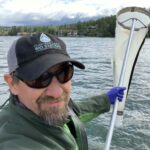

Phil Matson is a Research Coordinator with the Flathead Lake Biological Station (FLBS), University of Montana, where he coordinates their program in Montana’s sustained push against aquatic invasive species. Phil has 22 years specializing in GIS and remote sensing, relating habitat complexity to biotic and anthropogenic metrics. He currently manages the GIS database for the Crown Managers Partnership and serves as their representative on the US Fish and Wildlife Service’s Landscape Conservation Design team. Phil also oversees the data collection and publication of FLBS’s LakeNET Environmental Sensor Network, a network of remote meteorological and hydrologic sensors used for telemetry data modeling; is part of their long-term Flathead Lake Monitoring Project; and engages in various education and media outreach campaigns to local schools, student groups, and the general public.




Lech Naumovich has worked for numerous conservation organizations throughout the Western US contributing to vegetation and rare plant mapping, riparian restoration, and conservation easements and agreements. Lech currently works as an independent ecologist on conservation projects as a scientist as well as a videographer, photographer, and storyteller creating videos and marketing content for conservation. Much of his present work occurs in the Flathead Valley, Idaho's Snake River Watershed, as well as the San Francisco Bay Area. He formerly served as a Commissioner on the Flathead Basin Commission and a supervisor on the Flathead Conservation District.
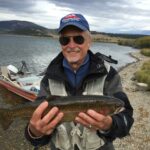

Randy Brodehl has been serving as the Flathead County Commissioner for District 3 since 2019. He has spent his adult life working to protect the lives, property, and rights of Flathead citizens. Randy formerly served as a Representative in the State Legislature until 2018 where he was Chairman of the Legislative Audit Committee, Vice Chair of the House Appropriations Committee, and Chairman of the Judicial Branch, Law Enforcement, and Justice Subcommittee. Randy also served four years on the Flathead Basin Commission. He is married to Joyce, and they have 22 grandchildren. Randy retired as Fire Chief of the Kalispell Fire Department in 2008. Randy has a bachelor's degree in Fire Service Management and is an Executive Fire Officer through the National Fire Academy. In his free time, Randy enjoys fishing for bass in the summer, duck hunting and ice fishing in the winter, and bow hunting for elk and deer in the fall. Randy is passionate about assuring that the Flathead remains a great place to live for all generations.


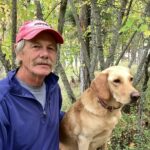

Scott Rumsey was raised in upstate New York, graduated as a biology major from a college in Missouri, and migrated to Montana to accept a fisheries position with Montana Fish, Wildlife & Parks. Scott’s early years were spent primarily on Flathead Lake and River monitoring fish populations and angler use. Scott also spent considerable time on stream project permitting required by Montana statute. Scott then advanced to a fisheries biologist position with FWP and undertook fisheries management responsibility for the Swan, Middle Fork and South Fork drainages. Scott’s associated work briefly included population monitoring, fishing regulations, habitat protection, timber sale audits, and threatened and endangered species management and recovery. After 32 years in this career, Scott continues to support good practices that work to sustain healthy fish and wildlife resources and the quality habitat supporting them by serving as a Supervisor on the Flathead Conservation District Board since 2021.
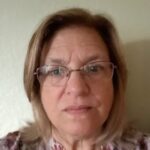

Julie Spencer is a Montana native, born and raised in the Flathead Valley. She attended Montana State University and majored in Chemical Engineering but did not complete her degree after getting married and starting a family. After Julie’s children were in school, she returned to school at Flathead Valley Community College where she received an Associate of Science, an Associate of Arts, and an Applied Associate of Science in Business Management with Accounting Emphasis. Julie has worked in the water & wastewater industry since the late 1990s and has been employed at Bigfork Water and Sewer District (BFWS) since 1998. In July 2003, Julie was promoted to General Manager of BFWS and became manager of Woods Bay Water and Sewer District in July 2020. Julie was appointed and elected to the Montana Rural Water Systems Board in 2016 where she served as Treasurer from 2016 to 2023 at which time she was elected as Vice President.


Tracy Campbell is the Superintendent of the City of Missoula Stormwater Utility and has worked with the city since 2019. She manages the operations of the stormwater system and compliance with the City’s Municipal Separate Storm Sewer System (MS4) Permit. She has nearly 20 years of experience in environmental regulatory compliance, specializing in the Clean Water Act, USACE Levee Safety Program, and floodplain management. Tracy received her Bachelor of Science from Colorado State University and her Master of Science from Montana State University. She committed to applying scientific principles to protect water quality and helping the City of Missoula make meaningful progress towards environmental sustainability.
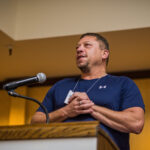

Rich Janssen Jr. is an enrolled Qlispe (upper Kalispel) Tribal Member of the Confederated Salish and Kootenai Tribes. He has spent his entire 31-year career with his Tribes, the last thirteen as the Department Head of Natural Resources, which includes over 258 employees within the Divisions of Environmental Protection, Fish, Wildlife, Recreation, and Conservation, and Engineering and Water Resources. Rich has an undergraduate degree from the University of Montana and a Master of Business Administration from Gonzaga University. Rich is married with a grown daughter and son, Jake, who passed in April of 2023. He also has an English Bulldog named Dennis and is a strong advocate for all people with Autism.
Sen. Mike Cuffe has been involved in aquatic invasive species protection, specifically quagga and zebra mussel prevention, since 2011. Sen. Cuffe carried the legislation to create the Upper Columbia Conservation Commission in 2017 and the Western Montana Conservation Commission in 2023. Sen. Cuffe also helped to create federal Water Resources Development Act funding and has helped develop regional programs. Sen. Cuffe served on the Invasive Species Advisory Committee of the National Invasive Species Council.

Lindsey serves as the Water Quality Division Administrator at Montana's Department of Environmental Quality, where she leads a dedicated team in their relentless pursuit of ensuring clean water across Montana from peaks to prairies. In this role, Lindsey oversees the administration of key legislative acts, including the Montana Sanitation in Subdivisions Act, the Safe Drinking Water Act, and the Clean Water Act. Raised in the community of Billings, Lindsey's commitment to environmental stewardship was instilled early on. She graduated from Montana State University. As the Water Quality Division Administrator, she plays a pivotal role in coordinating and implementing essential programs that safeguard both public health and the environment. Currently residing in Helena, Montana, Lindsey shares her home with her husband and two feline companions.
Tom Woolf has been working on aquatic invasive species issues for over twenty years in Colorado, Minnesota, Idaho, and Montana. In 2017, he started as the AIS Bureau Chief for Montana Fish, Wildlife and Parks where he currently coordinates and manages the Aquatic Invasive Program. Tom served on the Upper Columbia Conservation Commission for 6 years and as Vice Chair of the Commission from 2018 to 2023.
Tom is the Environmental Services Bureau Chief at Montana Department of Transportation (MDT). A proud graduate of Montana State University, he has a Bachelor of Science degree in Civil Engineering and is a licensed Professional Engineer. He has been part of the MDT team helping deliver infrastructure projects for the past 30 years. Tom has held various engineering positions at MDT including those within the geotechnical, bridge, and consultant design bureaus. In his free time, Tom can be found perfecting the art of building longbows and spending time with his family outdoors, hunting, fishing, camping, and hiking. Tom’s favorite place to be is on or around the lakes, rivers, and creeks in Montana.
Galen Steffens returned to the Department of Commerce as the Community MT Division Administrator after serving as the Water Quality Planning Bureau Chief at the Montana Department of Environmental Quality. Prior to her time at DEQ, Galen was the Community Planning Program Manager at the Department of Commerce and previously worked as a city planner for the City of Great Falls. Galen grew up on a farm in Colorado and has lived in Montana for the past 20 years. She is a graduate of the University of Montana and is an avid backpacker and general all-around lover of the outdoors. Galen is passionate about making a difference in the state in which she lives, works, and recreates. Galen lives in Helena with her two children, husband, and dog.
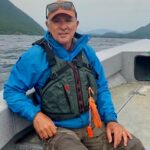
James Elser is Bierman Professor of Ecology at the University of Montana and since March 2016 has been Director of UM’s Flathead Lake Biological Station at Yellow Bay. He also holds a part-time research faculty position in the School of Sustainability at Arizona State University where he directs the Sustainable Phosphorus Alliance. Trained as a limnologist, Dr. Elser is best known for his work in developing and testing the theory of ecological stoichiometry, the study of the balance of energy and multiple chemical elements in ecological systems, and for his work on phosphorus sustainability. Currently, Dr. Elser's research focuses most intensively on Flathead Lake as well as mountain lakes of western Montana. Specific studies involve observational and experimental studies at various scales, including laboratory cultures, short-term field experiments, and sustained whole-ecosystem manipulations. Previous field sites have included the Experimental Lakes Area in Ontario, Canada; lakes of the Arctic and of Patagonia; lakes, forests, and grasslands of the upper Midwest; and desert springs in Mexico's Chihuahuan Desert. In recognition of his research accomplishments, Dr. Elser was elected to the National Academy of Sciences in 2019. He has also been named a Fellow of the American Association for the Advancement of Science (AAAS) and a foreign member of the Norwegian Academy of Arts and Sciences. In 2012, he received the G.E. Hutchinson Award from the Association for the Sciences of Limnology and Oceanography (ASLO), the world's largest scientific association dedicated to aquatic sciences. During 2014-2016, he served as ASLO’s President. Dr. Elser holds a PhD from the University of California (Davis), an MS degree from the University of Tennessee, and a BS degree from the University of Notre Dame.
Sara Edinberg is an Assistant Research Hydrogeologist with the Montana Bureau of Mines and Geology (MBMG), working on statewide aquifer mapping and assessments as part of the MBMG's Ground Water Assessment Program. Sara has a B.S. in Geology from Colorado State University and an M.S. in Hydrogeology from Montana Tech. Her research interests include groundwater geochemistry as a tracer for aquifer recharge sources, groundwater-surface water interaction, and acid rock drainage chemistry, which was the focus of her master's thesis. In her spare time, Sara enjoys cooking, hiking, and skiing with her dog, Betsy.


Peter Brumm is a hydrologist with the U.S. Environmental Protection Agency based in Helena, Montana. He works with states, Tribes, and other partners to implement the Clean Water Act in his roles as the USEPA Region 8 Total Maximum Daily Load (TMDL) coordinator and Columbia River Basin Restoration Program coordinator. Peter graduated from the University of Montana College of Forestry and enjoys recreating on and in Montana's bountiful water resources when not in the office.
Cory joined the Bureau Reclamation from Idaho DEQ where he served as a Senior Water Quality Scientist within the Technical Services Division of the Agency. In that role he developed TMDLs for water quality impairments such as temperature, sedimentation, and bacteria. He also led and participated in collaborative efforts for special reports and projects such as wilderness temperature analysis, project data quality assurance and control, aquatic invasive species, and stream and river temperature modeling in support of the DEQ state and regional offices. Prior to that he worked in private industry leading and participating in water quality investigations in support of mining development and NEPA documentation from South America to Alaska. He looks forward to capitalizing on his experience and helping promote the mission of BOR.


Melissa Schaar is the Associate Director of Research and Investigations for the USGS Wyoming-Montana Water Science Center located in Helena, Montana. She manages a multi-disciplinary team of microbiologists, ecologists, physical scientists, geologists, and hydrologists. Melissa is the project manager of several scientific investigations that explore the effects of mining on water quality and ecosystems with special experience working in high profile international transboundary watersheds. Melissa has over twenty years of experience working in private industry and government in the fields of hydrology, hydrogeology, geochemistry, engineering, water use, water quality, and policy.
Greg Hoffman has been a fishery biologist on the Kootenai River since 1996 and has worked for the U.S. Army Corps of Engineers at Libby Dam since 2002, representing the Corps in all fisheries and water management issues in the Kootenai River and Koocanusa Reservoir in Montana, Idaho, and British Columbia, Canada. Greg represents the agency on several aquatic species and habitat recovery teams, community action committees, regional forums, and interagency task forces. The Corps operates and maintains Libby Dam for multiple purposes, including power production, flood risk management, environmental stewardship, and recreation and is obligated to operate consistently with all law and regulations, including the Endangered Species Act, biological opinions, and any court orders that address Libby Dam operations and maintenance. Greg’s function is to ensure that the Corps’ actions benefit ecosystem function to the extent practicable while also maintaining the authorities and mission of the Libby Dam.
Kate Wilson is the Montana Liaison for Bonneville Power Administration (BPA), addressing and monitoring energy-related policies and issues in the state. She previously served as the Executive Director of the Flathead Basin Commission and the Upper Columbia Conservation Commission (2017-2022). She has spent her career thus far working on and building support for water quality and AIS policies & programs in the west. BPA is a nonprofit federal power marketing administration based in the Pacific Northwest that owns 15,000+ miles of transmission lines; markets power from the federal dams in the Columbia River Basin, including Hungry Horse and Libby in Montana; and funds all fish & wildlife mitigation and dam maintenance and upgrades within the federal Columbia River System. Kate is based in Missoula, where she lives with her partner and two pups, a magnificent place to treasure abundant water and public lands.
Casey joined the Western Montana Conservation Commission as the Executive Director in 2023 and is excited about building up the new commission and effectively combining the past work of the Flathead Basin Commission and the Upper Columbia Conservation Commission across western Montana. Casey previously worked as the Environmental Coordinator for the City of Kalispell, where her work focused on protecting and improving local water quality. She has also served as a governor-appointed Commissioner on the Flathead Basin Commission, filling multiple roles including vice-chair, co-chair of the Education and Outreach Committee, and member of the Onsite Wastewater Committee. She has envisioned and developed numerous public programs and technical reports, as well as serving on many committees and groups throughout northwest Montana. She holds a Master of Science in Environmental Science and Management, where her thesis focused on aquatic invasive species, and has volunteered on marine conservation projects around the world.
Kelly grew up in the Flathead Valley before attending Montana State University. During this time, she worked with the Flathead Biological Station on Dreissenid Mussel invasion potential in Western MT lakes. She went on to pursue her Master's in Environmental Science, focusing on remote sensing techniques for harmful algal bloom detection and trend characterization. She loves anything outdoors, particularly activities her dog, Boots, gets to join. She is excited to work towards protecting her favorite place in the world surrounded by an equally passionate team.
After receiving her B.S. in Geology and Government and Law, Emilie served as an AmeriCorps member with the Flathead Basin Commission and City of Kalispell where she became familiar with western Montana’s aquatic resource challenges. Emilie then had the opportunity to work as the Nonpoint Source Coordinator for the Flathead Basin Commission, conducting field work and supporting education and outreach programs in the watershed. As a Program Coordinator for WMCC, Emilie is eager to expand the influence of previous work and establish connections across the region to protect the area’s incredible natural resources and promote environmental stewardship. Emilie is currently pursuing her M.S. in Resource Conservation at the University of Montana. In her free time, Emilie enjoys hiking, knitting, and snuggling with her cats.
Stephanie’s fascination for the natural world brought her to Missoula in 2013 to pursue a degree in biology at the University of Montana. During this time, she assisted with research on nesting bird behavior and butterfly morphology. She became enthralled with museum collections as a curatorial assistant at the Philip L. Wright Zoological Museum. Stephanie then completed her M.S. in Biology from California State University, Chico, while exploring the creeks and woodlands of the Sierra Nevada foothills. In addition to researching insect and plant interactions, she was a biology lecturer at the university and served as curator and STEM educator for Gateway Science Museum. Returning to Missoula, Stephanie connected with our western Montana community as a Teaching Naturalist at the Montana Natural History Center. In her free time, you can find Stephanie reading, hunting for wildflowers, and attempting to perfect the chocolate chip cookie.
Heidi is a 2006-2007 Montana Conservation Corps alum and has been a conservation professional in Western Montana since 2014 when she began work as a Soil Conservationist trainee for the Natural Resources Conservation Service (NRCS). She continued this career while attending Flathead Valley Community Colleges’ Conservation and Resource Management program. After graduating, she served as the Coordinator for the Lake County Conservation District in Ronan for 7 years where she worked with partners on adult and youth soil, water and wildlife conservation programs and community education events. As a Program Specialist for WMCC, Heidi is looking forward to using her prior experience and skills to help create engaging, meaningful water quality programs in Western Montana. Native plants are a professional and personal passion for her, and, in the past, she’s worked as a Botany technician for the Bitterroot and Swan National Forests and Glacier National Park. In her free time, you can often find Heidi out in her native plant garden, other people’s gardens, or in the middle of the wilderness identifying grasses and flowers for fun.
Kristen grew up in Southern Oregon and lived in Australia for 14 years before moving to Missoula in 2017. She has a BSc in Environmental Biology from the Evergreen State College and a Master’s in Public Administration from the University of Montana. She has always been drawn to water in one way or another, whether it be life guarding, floating down the Rogue River’s wild and scenic section, conducting research on aquatic insects (damselflies), or working in water policy. The highlight of her career, to date, has been working for the Murray Darling Basin Authority in Australia, the country’s federal water regulator. She is looking forward to contributing to the work of WMCC and seeing the outcomes of solid collaborations focusing on water quality. Outside of work, she loves spending time with her dogs, family, and friends doing almost anything outside.
A prairie girl who now calls the mountains home, Krista worked in the family business as soon as she could see over the counter. She bid farewell to the flatlands and headed to Montana State University, earning a business degree while working at the MSU Libraries. It was there she developed a passion for fundraising and development which propelled her into the banking sector where she helped customers achieve their financial goals. Following, Krista joined the community development team at the City of Kalispell where she worked on community-transforming projects that have shaped the city for years to come. She is thrilled to be joining the WMCC team to drive the mission of preserving and protecting our natural resources in Northwest Montana so that our communities can continue to live, play and prosper!

